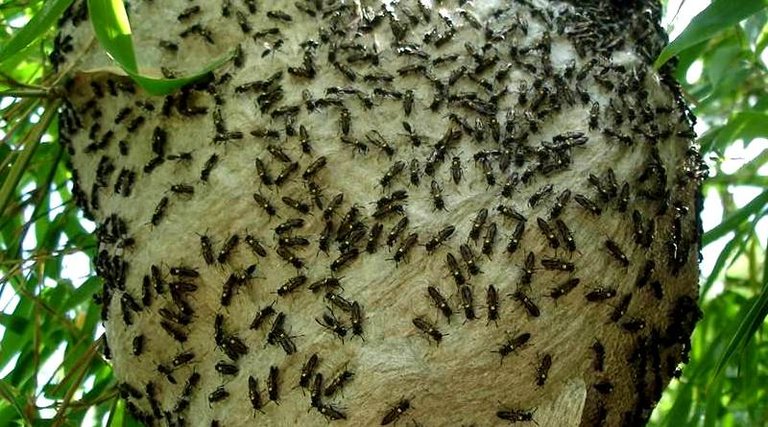A team of scientists from the Institute of Biosciences at the University of São Paulo (Brazil) and the University of Leeds (UK) have discovered that a wasp with a considerably painful bite could be a very effective tool against cancer. And is that the poison of the Paulista Polybia, commonly known as paulistinha, contains a molecule capable of attacking cancer cells without damaging healthy cells. The study has been published in the journal Biophysical Journal.

The wasp in question, native to southeastern Brazil, lives in large communities with hundreds of specimens and its venom is so potent and so particular that scientists have been studying it for decades.
One of the peptides (molecules formed by the union of several amino acids) known as MP1, allows this wasp to keep the nest safe from bacteria thanks to its potent antibacterial action and in a 2008 study it was confirmed that it also attacked cancer cells from Some types of cancer. But how is the poison capable of discriminating and acting alone against cancer cells?
"Peptides from all venoms are generally cytotoxic [toxic to cells] but not MP1 and have a potent bactericidal activity. Both the bactericidal and antitumor actions are related to the ability of this peptide to induce leaks in the cells by opening the pores or fissures in the cell membrane, but having positive charge and the bacteria and the tumor cells have in their membranes lipids with Negative charge, electrostatic attraction is the basis for this selectivity, "explains Joao Ruggiero Neto, co-author of the study.

The process is as simple as it is striking. In healthy cells, lipids are concentrated within the membrane; In the cancerous, we see that they are in the outer part. This difference is what allows the venom of the wasp to discriminate between healthy and cancerous cells.
To test this theory, the researchers used three models of cell membranes, discovering that the wasp venom peptide synthesized in the laboratory, was linked to the cancer cells with excess lipids in their membranes and not to healthy cells.
"Anti-cancer therapies that attack by the composition of the cell membrane lipids could be a new and complete class of anti-cancer drugs. It could be very useful in the development of new combined therapies, where several drugs are used simultaneously to treat cancer, attacking different parts of the cancer cell at the same time, "said Paul Beales, co-author of the study.

The next step in the research will be trials with cell cultures and then with animals.
All beekeepers have to love the wasp too. But not just because it can now cure cancer. Even tho many consider wasp and the hornet the enemy of beekeepers. I have slowly learned to appreciate the wasp, which always builds it's home near honey bee hives for food of course. The wasp queen over-winters here in the UK always in my beehouse, basically within 3 metres of a beehive.
wao!!! :O